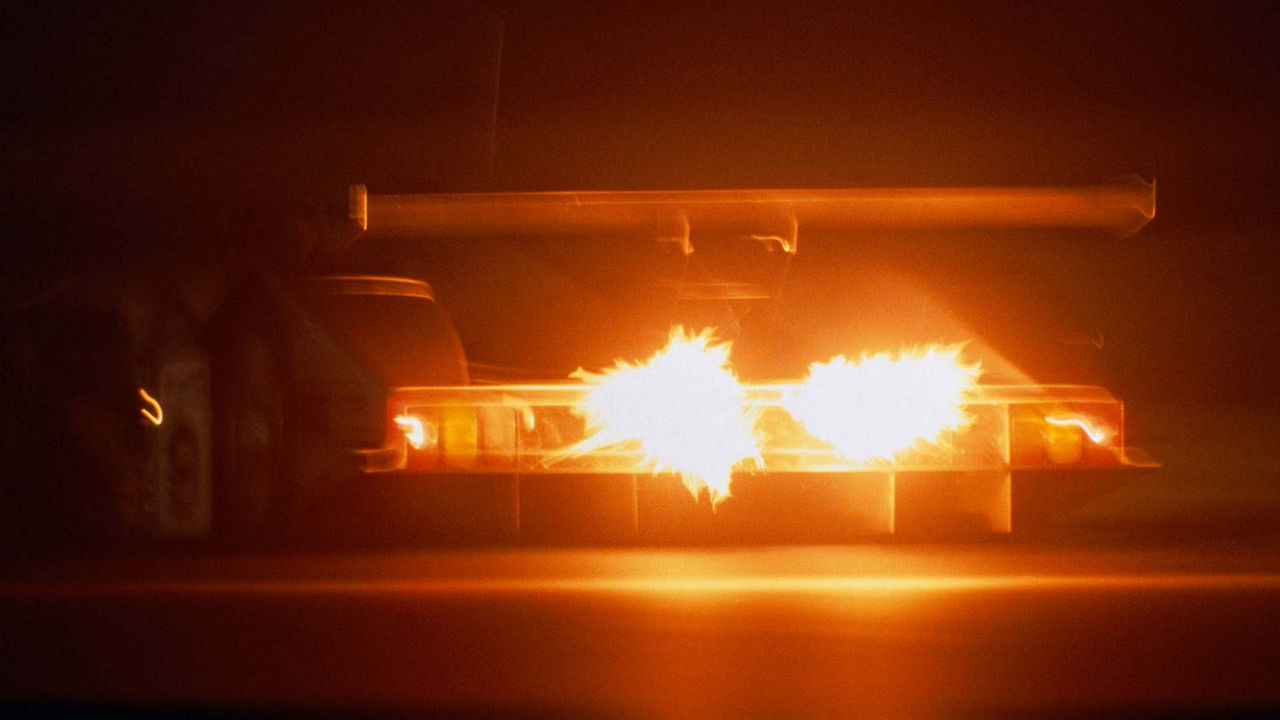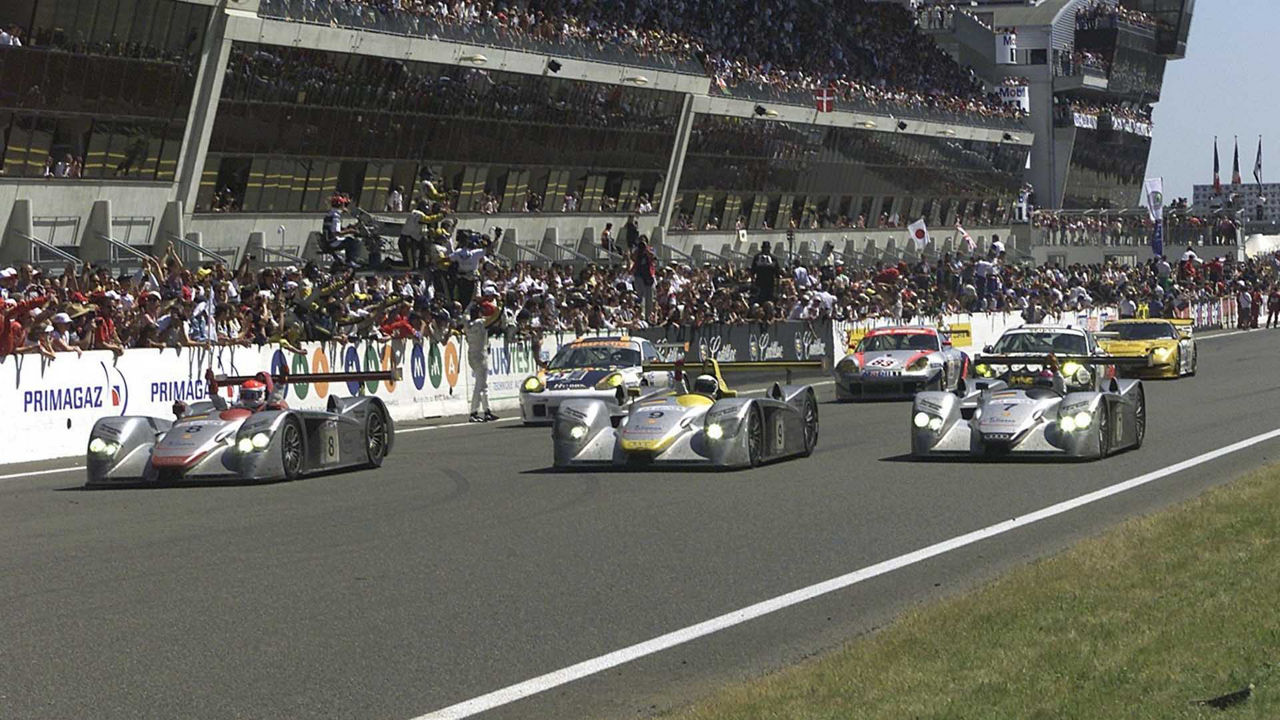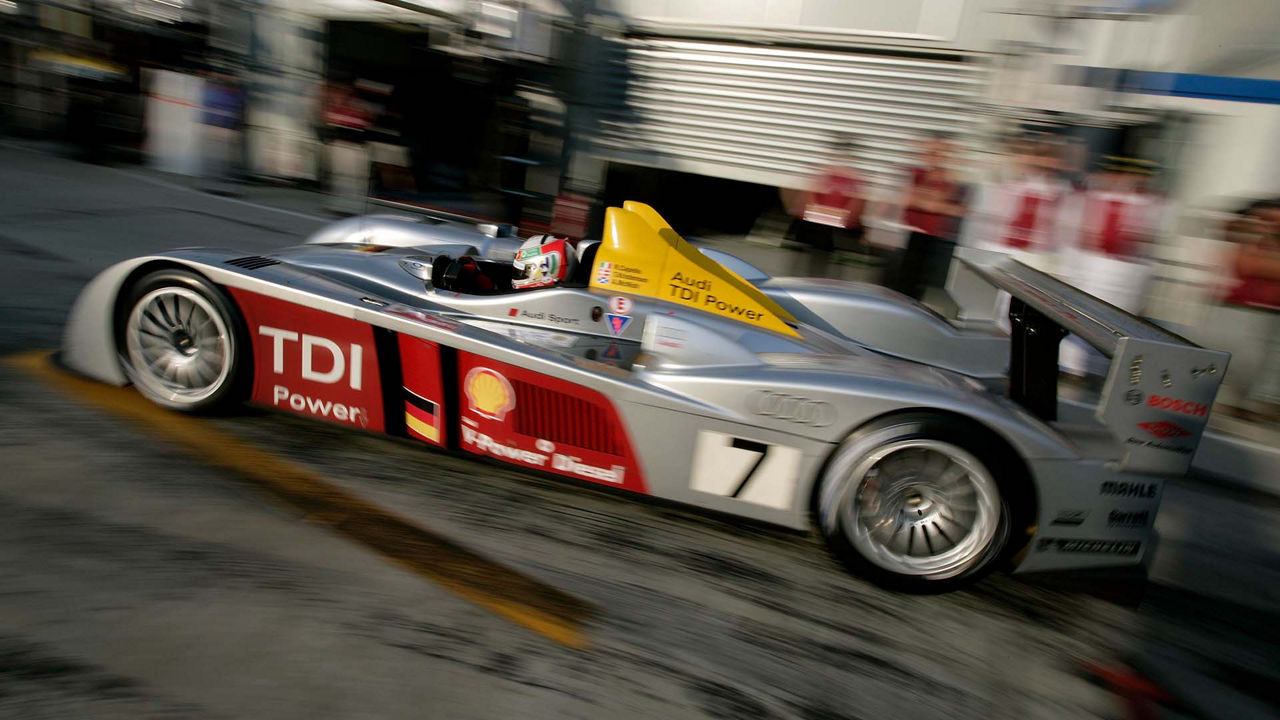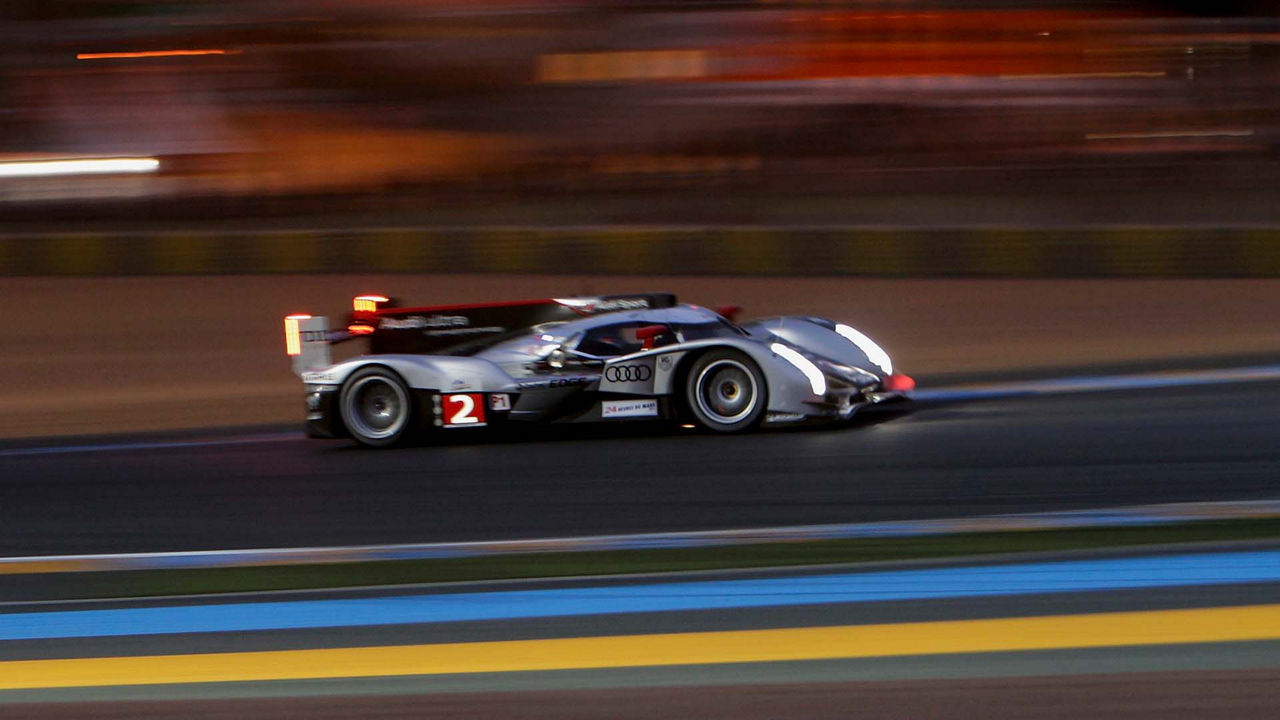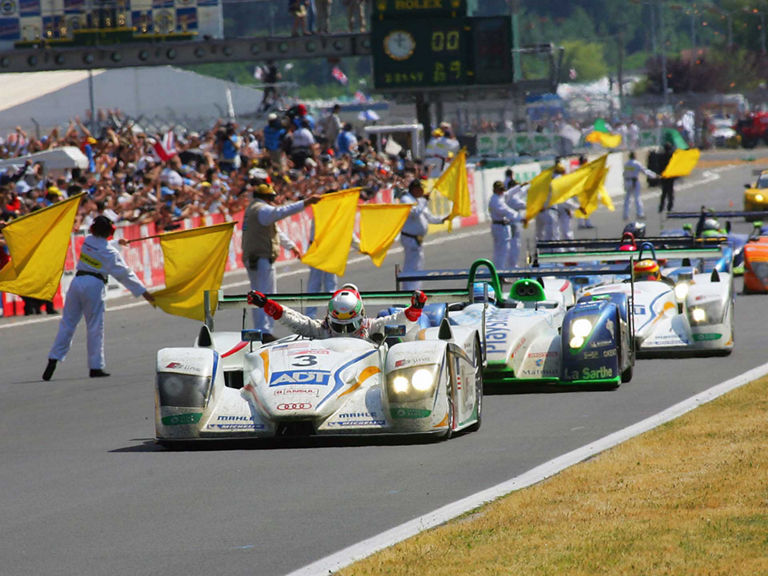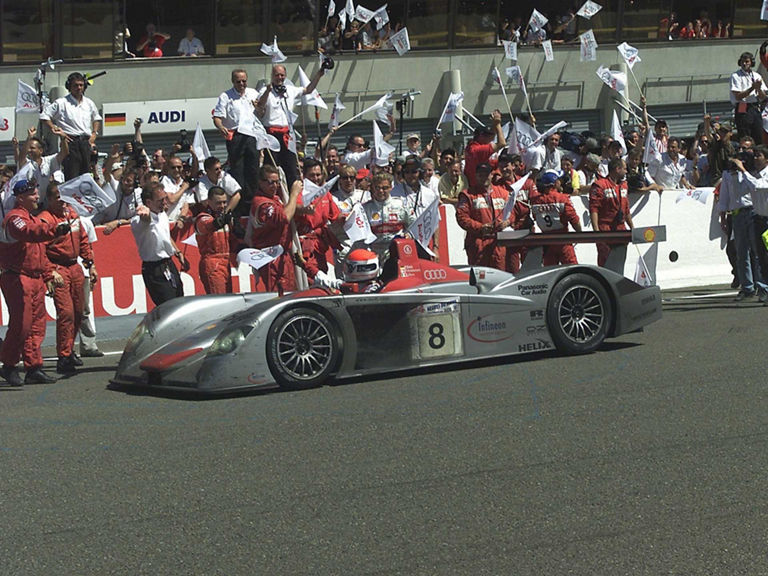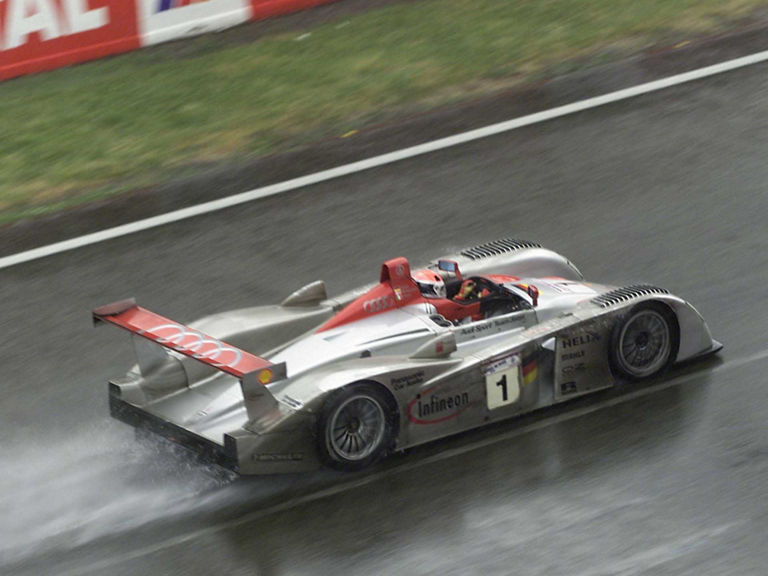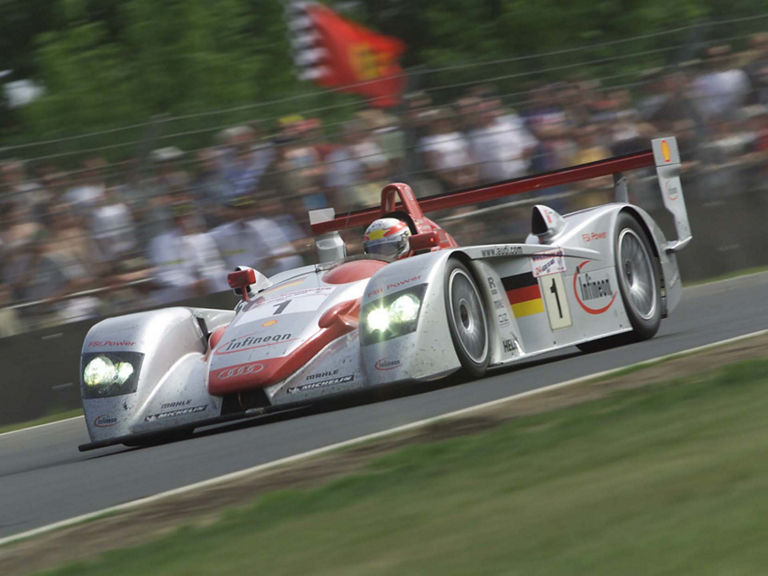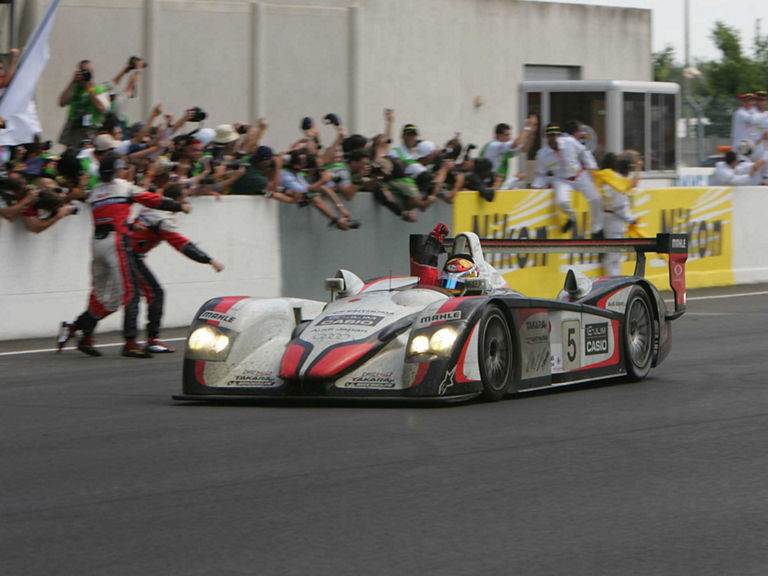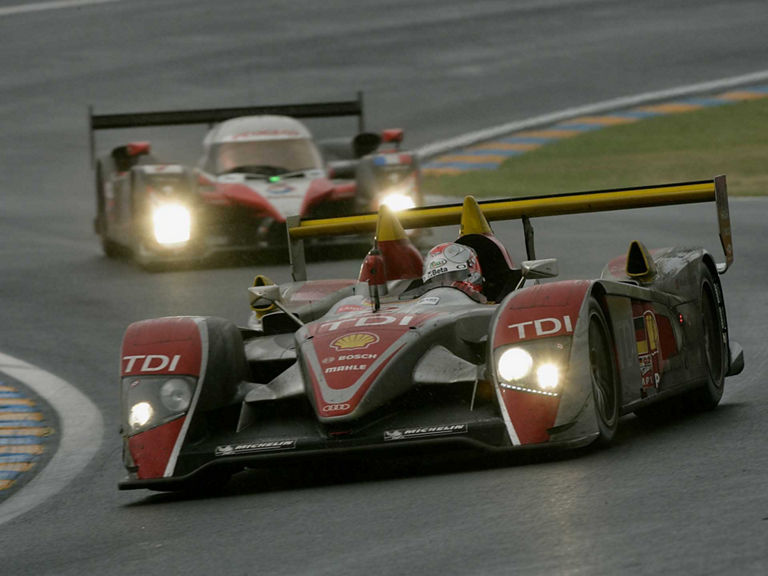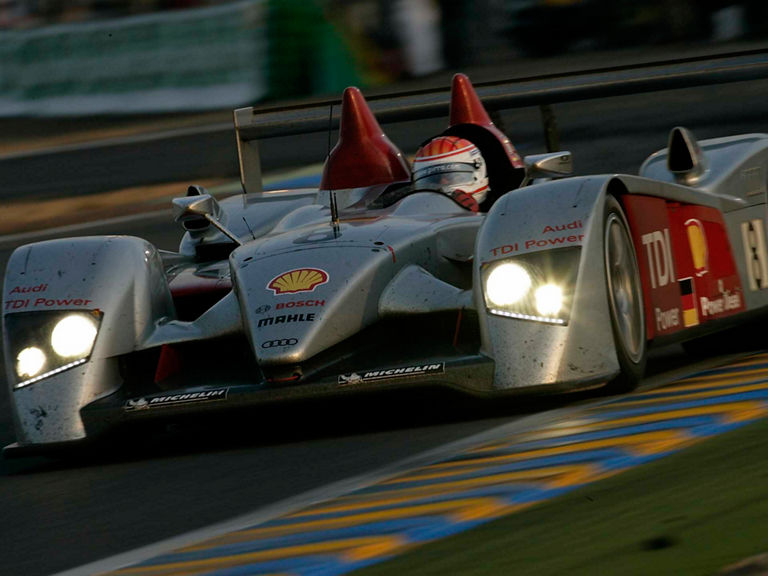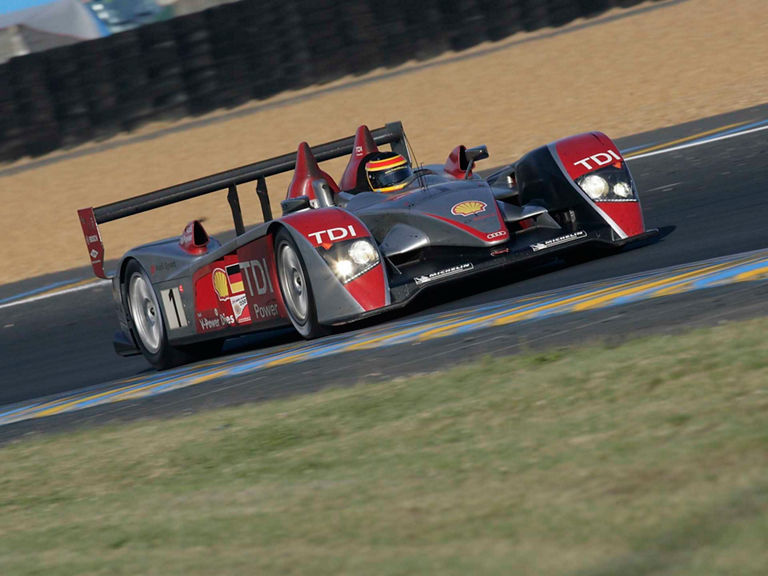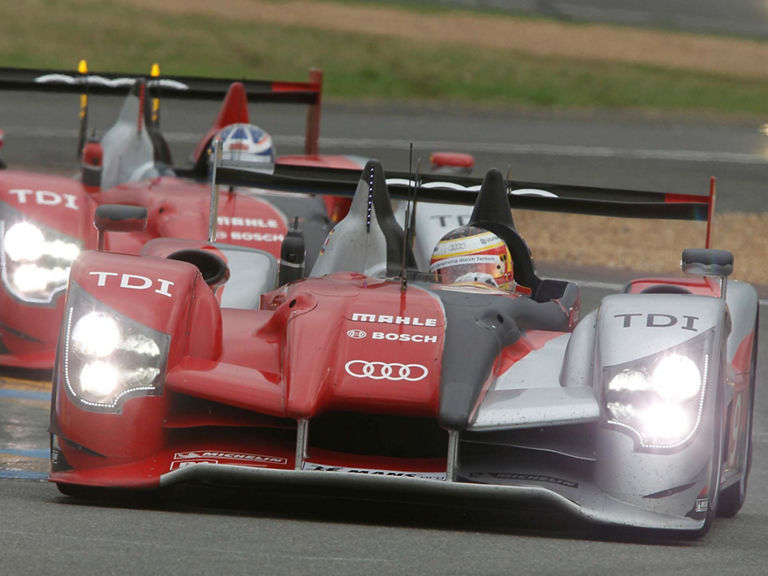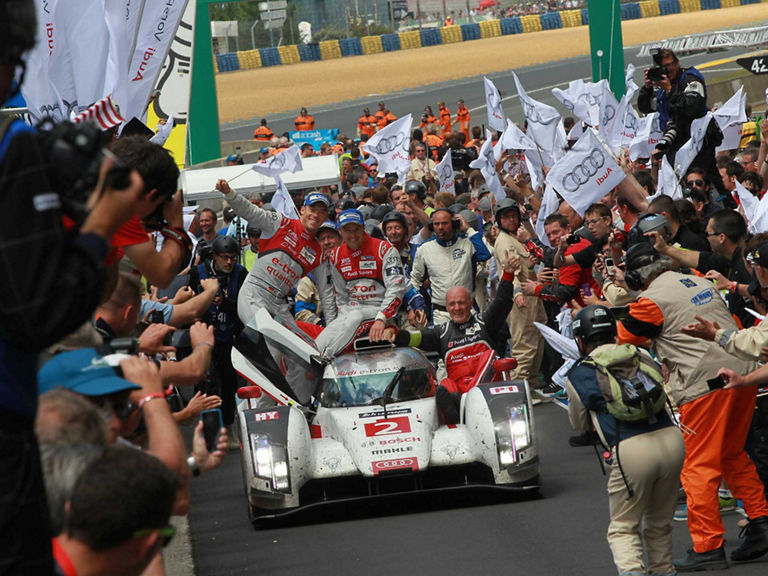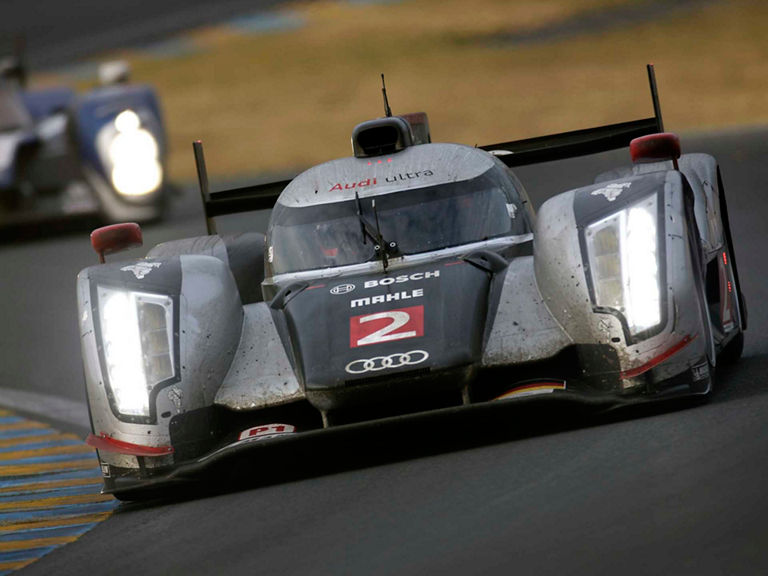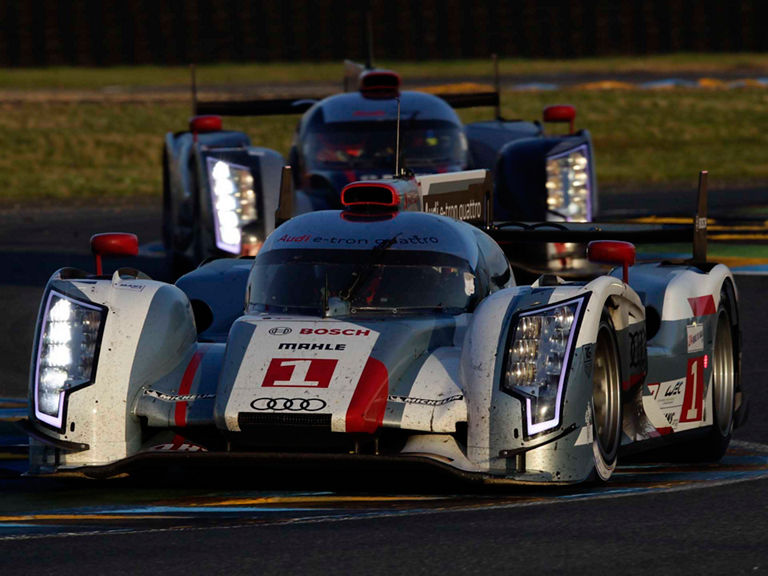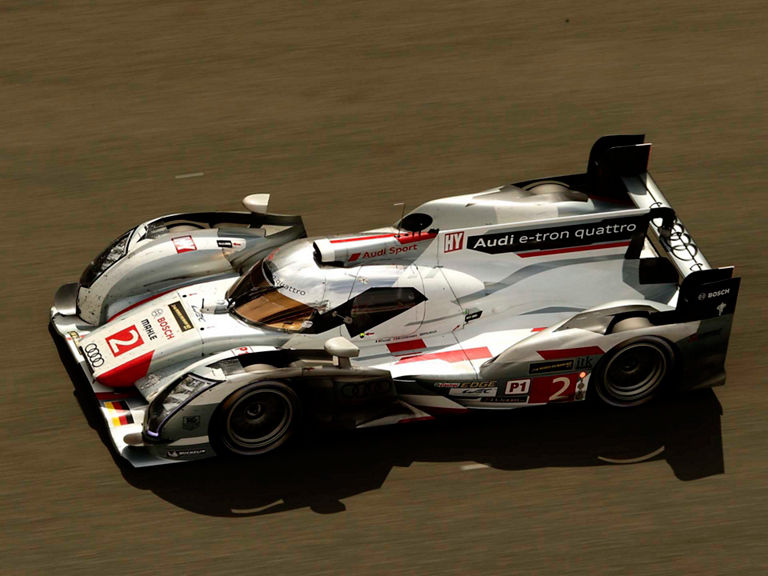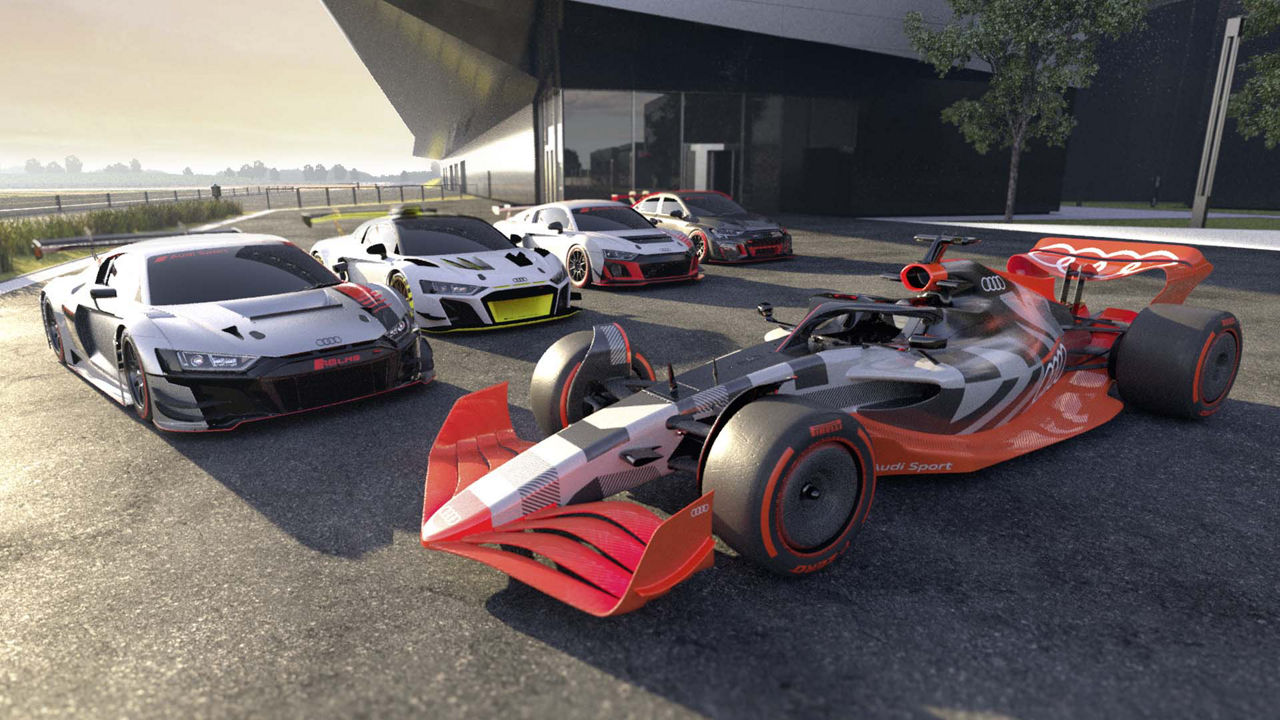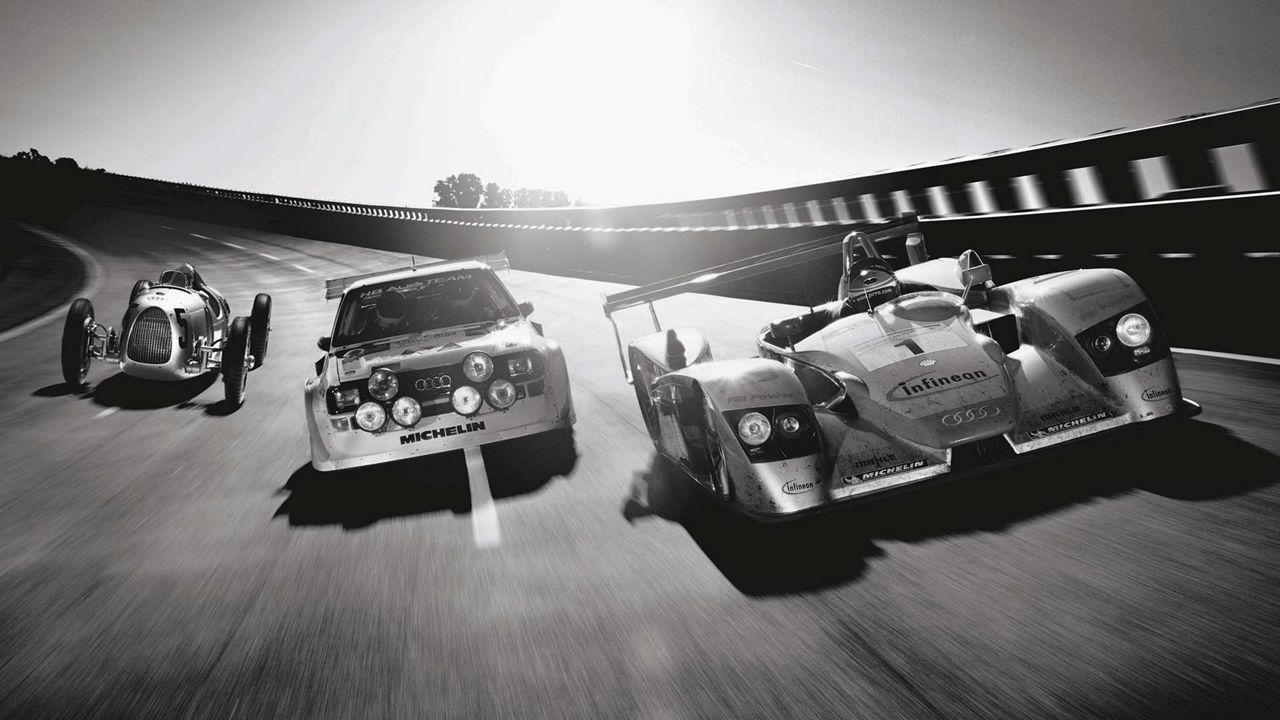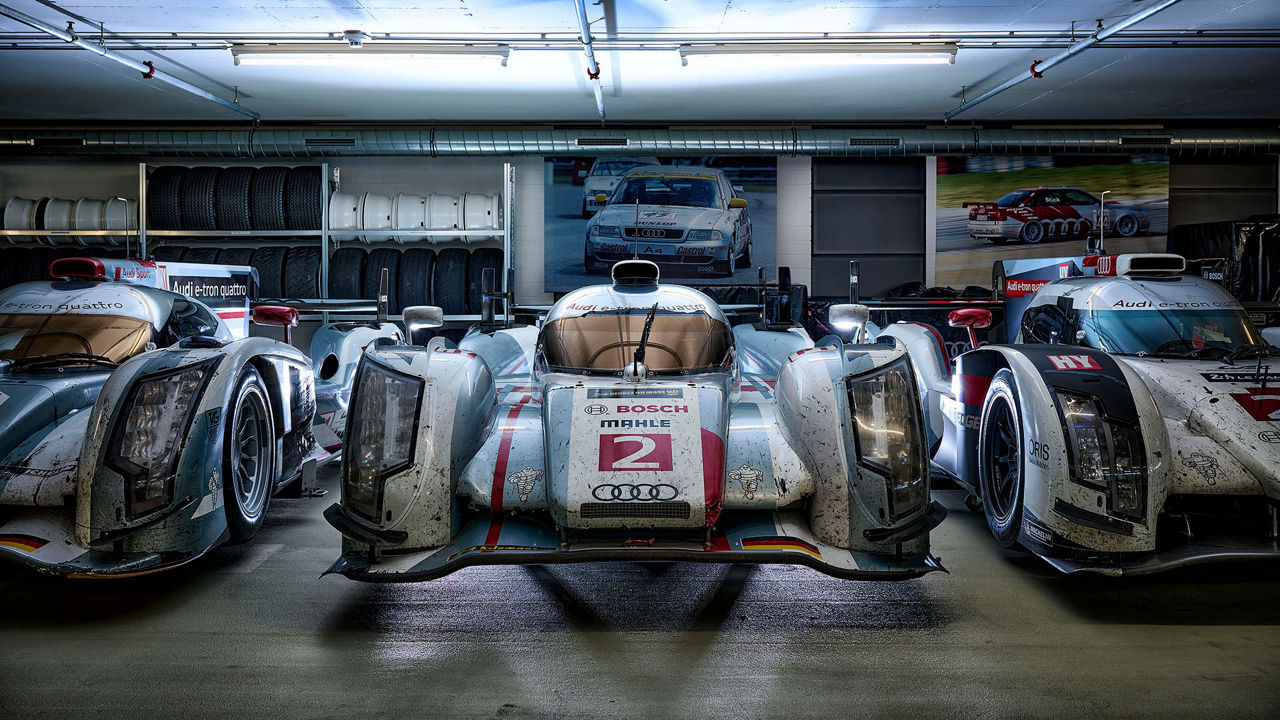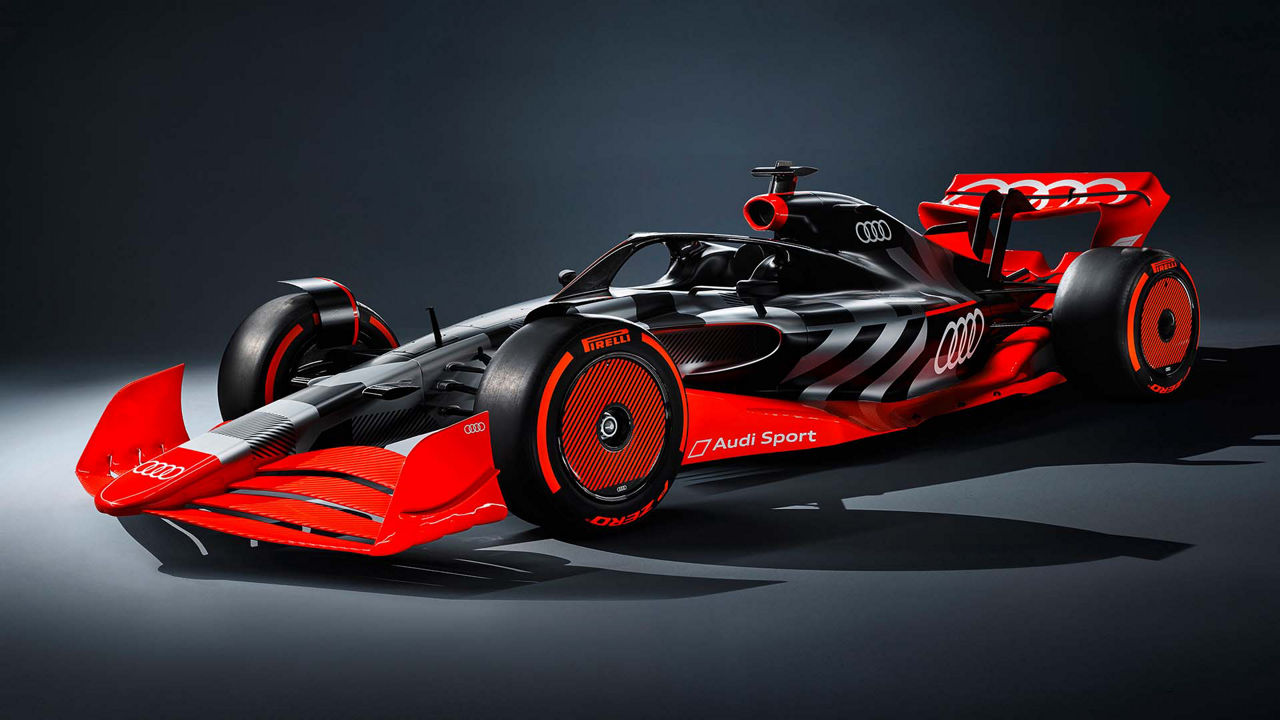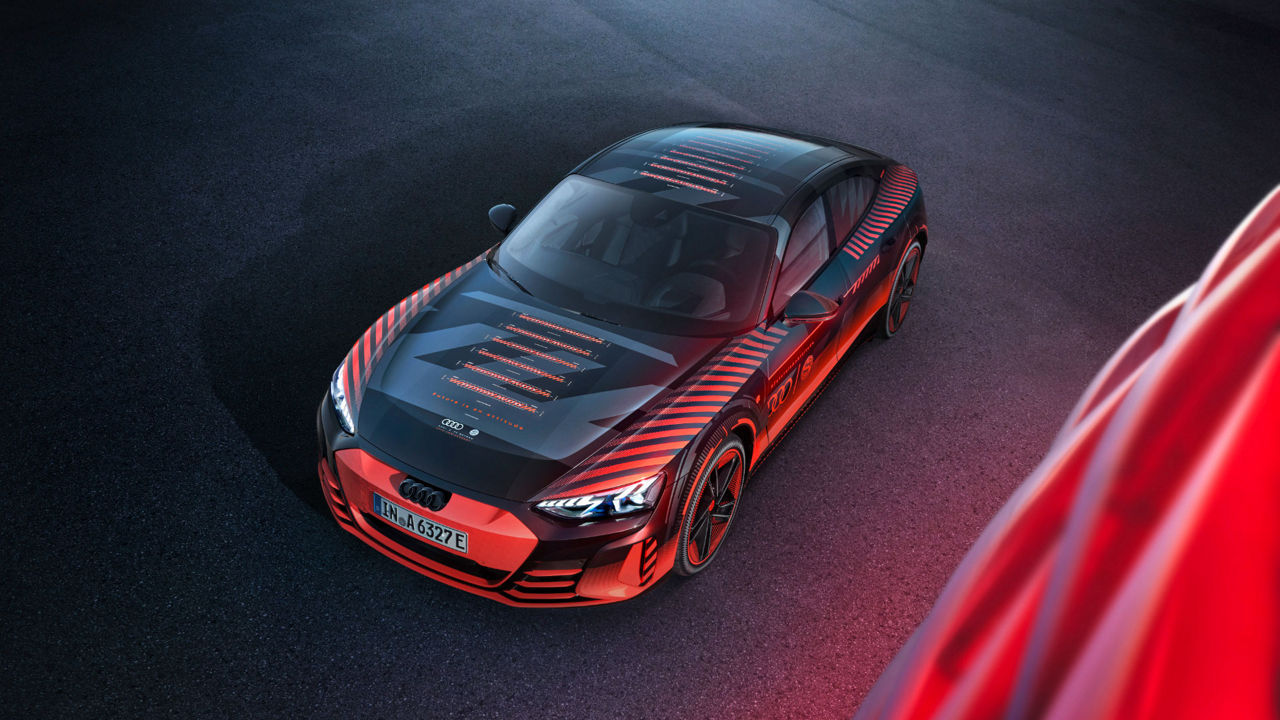


The 13 Le Mans-winning prototypes brought together for a photo shoot in Neuburg
The 13 Le Mans-winning prototypes brought together for a photo shoot in Neuburg
Audi R8
Strong right from the start
Audi’s history at Le Mans began with two models: The Audi R8R roadster and the R8C coupé represented the brand at its debut in 1999. The roadster immediately achieved a podium result with third place in a highly competitive race. Based on the findings from its first attempt, Audi developed its successor for the 2000 season, the R8. This model went on to become the most successful sports prototype of the modern era. It achieved 63 victories in 80 sports car races, including five victories at Le Mans, achieved between 2000 and 2002, as well as in 2004 and 2005. The titles in the American Le Mans Series since 2000 and in the European Le Mans Series in 2001 and 2004 completed the record. A defining innovation was the TFSI system, which was used for the first time in 2001. This direct petrol injection system optimized the fuel consumption and responsiveness of the racing car.

The Audi R8C and Audi R8R at the 1999 Le Mans 24 Hours test day
Audi R10
Historic milestone
The successor, the Audi R10 TDI, had a diesel engine, which was an unusual innovation in the world of sports cars. The V12 TDI engine with a displacement of 5.5 litres produced more than 650 hp. The extremely high-torque and efficient engine gave the drivers a lot of pleasure. The engine demanded everything from the engineers, as the engine technology also influenced the entire vehicle concept in terms of its centre of gravity, cooling, aerodynamics, drivetrain, weight distribution and other aspects. The R10 TDI remained unbeaten at the Le Mans 24 Hours between 2006 and 2008. This included the unforgettable victory in 2008 after an intense battle with Peugeot. The titles in the American Le Mans Series also went to Audi during this phase, as well as in the European Le Mans Series in 2008.

The V12 TDI engine of the Audi R10 TDI
Audi R15
The record holder
The Audi R15 TDI represented the next generation of Le Mans sports cars with the four rings. The innovations included a modern aerodynamic flow concept for the body, the TDI engine being reduced to ten cylinders, its turbocharger with variable turbine geometry (VTG) and the lithium-ion battery for the on-board electronics system. Following third place at Le Mans on its debut in 2009, Audi made history at the Sarthe a year later: the brand broke a 39-year-old distance record by completing 397 laps. The 5410.7 kilometres achieved by Timo Bernhard, Romain Dumas and Mike Rockenfeller are still unrivalled to this day. The R15 TDI marked the end of the era of 5.5-litre diesel engines. From the following year, the engines had to be reduced by a third, taking the displacement down to just 3.7 litres. It was also the last open-top Audi at Le Mans.

The Audi R15 TDI at the 2009 Le Mans 24 Hours
Audi R18
Innovations for the future
From 2011, the R18 accelerated the development of production-relevant technologies like no other sports prototype before it. The ultra-lightweight construction of the first construction stage of the coupé was already in line with a new Audi programme, the ultra technologies for more efficient production cars. The R18 with the compact V6 TDI engine achieved Audi’s tenth victory at Le Mans in 2011.

The launch of the Audi R18 TDI ahead of the 2011 season
Hybrid sensation
One year later, the brand once again made history. With the R18 e-tron quattro, Audi embarked on the path of electrification in motorsport. In 2012, a hybrid sports car achieved its first success at Le Mans. Based on the principle of tractive power addition, the V6 TDI engine powered the rear wheels, while the hybrid system on the front axle recuperated energy and delivered drive. In 2013, Audi prevailed again, this time with an improved R18 e-tron quattro. A fundamentally redeveloped generation of the R18 met higher safety standards in 2014 and competed for the first time under restrictive regulations with an energy limit. These regulations rigorously limited the consumption per race lap and this criterion was subjected to real-time monitoring. Audi won the biggest endurance race with hybrid technology for the third time in a row. This took the tally to a total of 13 victories for the four rings.

A look inside the Audi R18 e-tron quattro
Proving new technologies
The prototypes were also pioneering in many other areas: the digital rear-view mirror with the AMOLED system improved visibility for drivers and today helps to reduce the frontal area of cars in large-scale production. This makes it possible to increase the range, which is particularly important for e-mobility. The Audi R18 also featured full LED headlights with matrix light functions for the first time. From 2014, Audi laser light complemented the innovations in the area of light and visibility and is now also one of the lighting technologies offered for production models.

The 2014 Audi R18 e-tron quattro with the Audi Laser light system
Gallery
